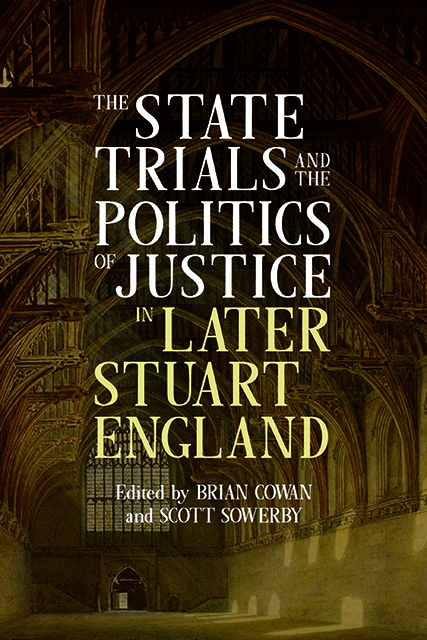10 - Politics and Sentiment in the Jacobite State Trials
Published online by Cambridge University Press: 14 January 2023
Summary
How were texts read in the past? This simple question raises so many knotty problems – of locating and assessing sources, of interpreting behavior and of theoretical assumptions concerning the practices of reading – that it might be regarded as nearly unanswerable with regard to individual texts. What strategies did authors, editors and publishers use to determine how texts might be read? Here we may be on firmer ground. As an influential compendium of materials that appeared in several different editions, State Trials provides a fascinating case study of how a set of texts was designed to be read.
State Trials was part of what Julia Rudolph has called the ‘deep engagement with print’ that was typical of eighteenth-century English law. Until recently, however, the early versions of State Trials were regarded as highly biased sources. The exasperated editor of the so-called fourth edition, Francis Hargrave, pointed this out as early as 1776. Complaints from historians about the incompleteness and partisanship of State Trials date back to J. G. Muddiman in the 1920s and have been repeated by George Kitson Clark and John Langbein. In an article published in 2006, however, Michael Mendle dismissed such criticisms, asserting first, that State Trials was based on accurate shorthand accounts of trial proceedings and second, that later editors were not pursuing particular agendas. Therefore, Mendle concludes, ‘a general confidence in the integrity of the process was not misplaced’. The trials belonged to a ‘culture of fact’ that appealed to the contemporary spectrum of political and religious points of view.
Mendle’s brief argument did not delve into ‘factuality’ as a hermeneutic strategy; nor did he consider whether State Trials might embody sentiment as well as facts. The subject demands a more critical approach. Because we cannot grasp at first hand the objective reality of a seventeenth- or eighteenth-century courtroom, the claim of ‘factual accuracy’ for a trial transcript kept by a shorthand writer, often in the employ of the court itself, is questionable. Without doubt, State Trials reflected the contemporary obsession with ‘facts’ in imagining the legal system. By reference to them, the justness of English law might be displayed, or the deficiencies in its application revealed.
- Type
- Chapter
- Information
- Publisher: Boydell & BrewerPrint publication year: 2021



